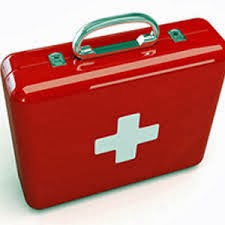Domestic accidents currently represent one of the leading causes of death in Europe, although it is too often ignored: they represent 2 to 3 times the number of deaths on the roads with more than 20,000 deaths per year. Older people are many but the worrying record returns to children is undoubtedly the leading cause of mortality since it produced more than 2,000 accidents per day of children under 6 years.
 |
| Be Treated At Home |
These figures should do reflect. Yet just take a little time to understand how children and older people work to put in place simple gestures prevention. In children the main risks relate to poisoning by ingestion of toxic products (cleaning products, medicines ...) that he simply suffice to put out of reach or in cabinets or locked cupboards. Burns are also too frequent: it goes too hot bath water to boiling pan with the child catches the tail, lighter lying around the barbecue in the garden. Then come falling down stairs or through windows: guard rails, protective barriers, bars exist yet. Choking hazards with toys, peanuts or other add to the list. A modicum of common sense sometimes enough to prevent some accidents: not put a suitable cabinet
climbing in a window, do not answer the phone during the bath, not to the rest of bleach in the bottle of Coke.
There are simulations which allow to represent the perception that children have with their small size of our apartments and thus realize the dangers they face given their need for spontaneous discovery!
Simple gestures of ensuring the safety of children should be added preventive education: must caution them, show them the good gestures of everyday life in the same way we will teach precautions to cross the road safely or phone numbers to call in case of problems.
And then regularly check the contents of the first aid box. Older people are more guettées by falls of all kinds, loss of consciousness, heart ailments that are far from inevitable if we react in the first moments.
We generally do not have defibrillator on hand and few of us have graduated first aid however it is possible to learn some basic skills that in many of cases used to wait for official aid.
Know we do abdominal compression for choking? Compression points for bleeding? An airway clearance in an unconscious person? A formal safety position? Chest compression and
mouth-to-mouth? Do we know when it is appropriate or not to move an injured person? The warm up? To remove him or not his wet clothes in case of hypothermia? Etc., etc.
Feel free to search the internet descriptions in pictures all these techniques and answers to your questions: it may encourage you to participate in courses organized for example by firefighters. Out of trouble do happen to others ... The first few seconds are often decisively accident for whatever nature.
